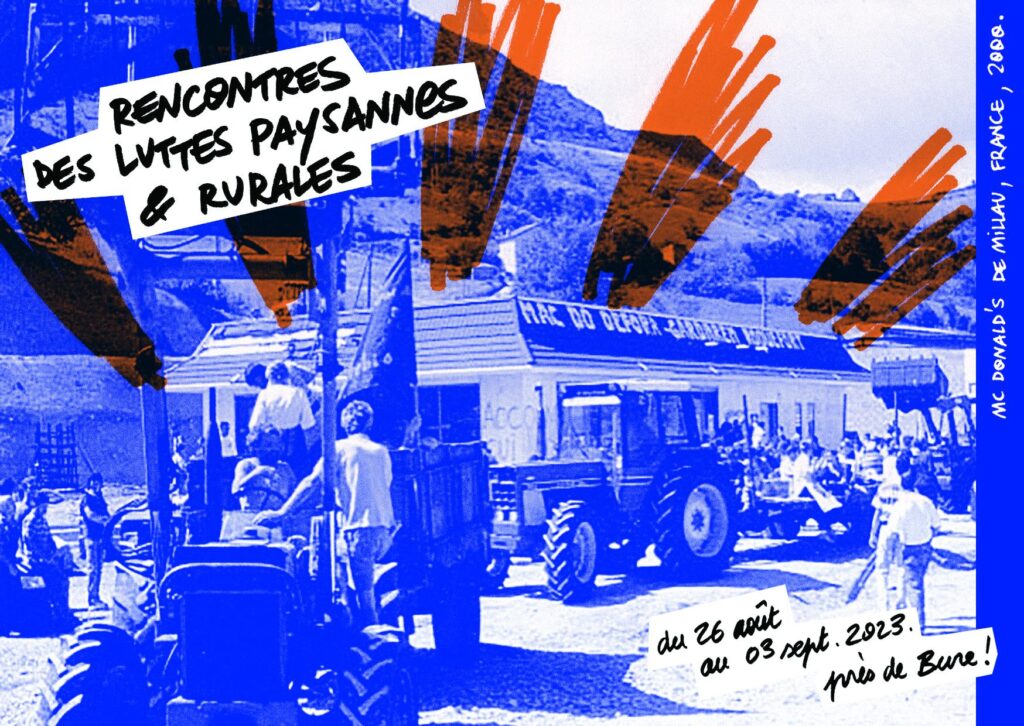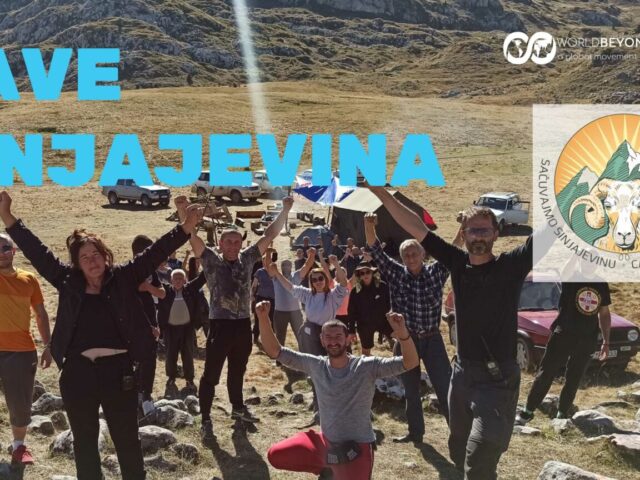The Gathering program is still being drawn up. We have identified the themes and we are in contact with about one hundred speakers that we have in mind for the various round tables and theoretical and practical workshops. Some workshops have already been confirmed, while others are still awaiting confirmation. The precise program remains to be worked out, taking into account various technical issues and people’s availability.
The final program still needs a bit of thought, but here’s a pre-program to help you plan ahead and avoid the unbearable wait that can eat away at your spring nights!
The 9-day choreography
The camp will be divided into several phases.
1. The first weekend
On Saturday August 26, we’re planning a soft landing to discover the camp and the surrounding area. Not too dense a program, then, but certainly some visits, a few stalls and probably a seed and seedling fair. Saturday evening will be opening night with concerts and DJs.
Sunday August 27 will be dedicated to the presentation of local initiatives and struggles: against CIGEO of course, but not only. We’re planning a big welcome plenary session, to define the main operating principles for the camp, and to give collectives the chance to introduce themselves. In the evening, we’ll be hosting a screening and debate.
2. The week from Monday August 27 to Friday September 1
The heart of the week will be dedicated to exchanges about peasant and rural struggles, combining round tables, discussions, debates, moments of sharing and coordination for collectives wishing to do so, training sessions, participative workcamps and practical workshops.
Every evening, there will be a film screening or a show, and a bar to continue exchanging over a drink.
3. Closing weekend
Saturday September 2 will be the mobilization day, with a peasant market and a demonstration. At the end, a big party will last until Meuse dawn, with concerts and DJs.
Spaces for the event programming
We will have 2 large 300-seat tents, one of which will be equipped for simultaneous translation in several languages, and two small 50-seat tents. In three of these spaces, the program will be planned in advance, with one slot in the morning and two in the afternoon. The last small tent will be available for self-managed programming: either for collectives and networks who would like to take advantage of this meeting moment to organize, or for discussions or workshops spontaneously proposed by participants.
Discussions and workshops soon to be confirmed
Introduction:
- Presentation of the diagnosis and strategy formulated in the book “Reprendre la terre aux machines” (Atelier Paysan & Sécurité sociale de l’alimentation) (“taking back the land from the machines”, by the Peasant Workshop and Social Security Food Project)
- Peasant resistance and struggles throughout history
The diversity of struggles:
- Struggles against extractivism: lithium and coal mines
- Defending water
- List of naturalist struggles actions
- The rout of roads
- Struggles against nuclear waste burial in Europe
- Struggles against NATO military bases in rural areas (with activists from Sardinia, Sicily, Montenegro and France)
- Agriculture and migration
- Struggle against “renewable” energy projects: wind turbines, methanization and photovoltaics on farmland and forests
- Struggle against industrial plantations and clear-cutting in forests
- Feedback on mass action strategies in various European countries
- …
Farming alternatives and agroecology:
- Issues and strategies to promote access to agricultural land in different European countries
- Peasant seeds: 1. technical discussions 2. Seed autonomy networks
- Vegetable gardening on living soil and conservation agriculture
- Large cereal cultures and bread-making
- Animal traction in agriculture and forestry
- Animal biodiversity
- Diverse forms of peasant collectives (governance, legal structure, etc.)
- Soft forest management
- Agroforestry
- Bio-vegan agriculture
- Self-managed training in vegetable gardening
- …
Breaking down walls between struggles and perpetuating our collectives:
- Anti-fascism in rural areas
- Eco-fascism
- Workshop about the “white norm in militant circles”
- Fighting classism in peasant/activist movements
- Issues and challenges in the ZADs
- Gender and peasantry (the book “Il est où le Patron? Chroniques de Paysannes” (“Who is the boss? chronicles of peasant women”), Commission Femmes de la Conf’… (Women commission of the peasant confederation))
- FLINT people in peasant and rural struggles
- Workshops: how do techniques contribute to the sexual division of labor?
- Rural anti-speciesist movements and collectives
- Sustainable activism: against peasant and activist burn-out
- Prevention / care in peasant and activist collectives
- Understanding and caring for the dynamics of our struggles
- Introduction to systemic oppression: theory and practical training for ally posture
- Conflict and violence handling: discovery workshops about mediation and NVC; in-depth workshop about mediation and conflict handling in collectives; workshop to co-elaborate a conflict handling system on the camp; introduction to restorative circles; coordination of allied mediators/facilitators; listening/mediation stand.
- Small shops and services in rural areas
- …
Practical workshops:
- Introduction to metalworking
- Drawing up a crop plan for diversified vegetable gardening
- Farm mechanics
- Route to practice reverse with trailers
- Seed reproduction
- Bread making
- Weeding, harvesting for camp and other vegetable gardening pleasures
- Naturalist walks
- Chainsaw maintenance
- Field demonstrations of self-built tools
- …

